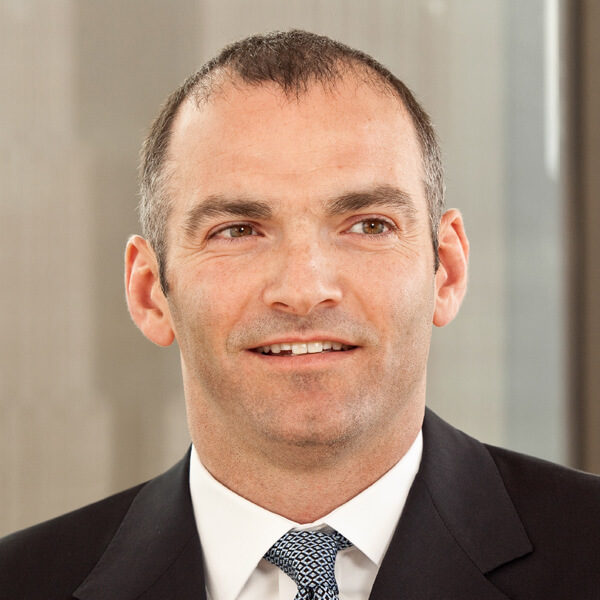Fixed Income
Capital IdeasTM
Investment insights from Capital Group
Federal Reserve
The US Federal Reserve (Fed) reinitiated its monetary tightening campaign this week, raising its benchmark interest rate by 25 basis points to a range of 5.25% to 5.5%. Chair Jerome Powell mentioned several times that the central bank could hike again in September, but seemed to believe the end of the hiking cycle is near.
"We are resolutely committed to returning inflation to our two percent goal over time. Inflation has proved repeatedly stronger than we and other forecasters have expected. And at some point, that may change. We have to be ready to follow the data. And given how far we've come, we can afford to be a little patient as well as resolute as we let this unfold," Powell said.
Headline inflation fell more than economists expected in June, dropping to 3% from May’s level of 4%, and US regional bank earnings were largely better than expected. Powell dismissed the possibility of rate cuts this year but left the door open for easing policy in 2024.
“We will be comfortable cutting rates when we're comfortable cutting rates. That won't be this year, I don't think. Many people wrote down rate cuts for next year ... That's just going to be a judgment that we have to make then – a full year from now,” Powell said.
Here are the latest views from fixed income portfolio managers Tom Hollenberg, Shannon Ward and Andrew Cormack, economist Jared Franz, and equity portfolio manager Chris Buchbinder.
Fed likely to remain firm until inflation is under control
Tom Hollenberg, fixed income portfolio manager
- Powell struck a balanced tone and continues to emphasise the Fed’s data dependence. Inflation is softening, but the labour market remains tight.
- Going by his statements, Powell wants to leave September open as a “live” meeting. That is likely intended to stop the market from assuming that hikes are over, leading to an easing of financial conditions, which could reignite inflation.
- Powell does not want to be remembered as a Fed Chair who let inflation get away. Therefore, the central bank will likely remain firm until something turns, either the labour market or the stock market. Until then, rates may remain range-bound and the yield curve persistently inverted.
Declining inflation gives Fed room to cut rates
Jared Franz, economist
- Even though the Fed raised rates at its 26 July meeting, it could ease policy before inflation reaches 2%. If inflation is coming down very quickly, then the real rate is implicitly going up. If inflation is moving in the right direction and toward 2%, the Fed has room to start cutting rates.
- For the better part of the year, I have been in the “mild and short” recession camp, but economic data has become more positive than I expected. I am not ready to change my forecast; however, the incoming data flow makes it look less likely that we will get a recession.
- Policy rates will settle higher in this monetary cycle. I believe the era of zero real rates is over. Several pieces of recent legislation have paved the way for greater government spending. The infrastructure bill, the Inflation Reduction Act and the CHIPS and Science Act of 2022 are going to be big. These will have a long runway, contributing substantially to GDP for the next five years, but they will also increase inflationary pressures.
High yield may fare better in this cycle
Shannon Ward, portfolio manager, high yield
- Credit may fare better in this cycle. The fact that so much time has passed under the cloud of an upcoming recession has meant that many companies have directed cash to pay down their debt, refinance debt, issue equity, adjust staffing levels and adjust spending to put themselves in a good position to manage through a possible recession.
- This caution that they have exhibited could mean we avoid a severe credit sell off if the economy contracts, and it may even lessen the likelihood of a recession altogether.
- Companies whose bonds are priced at distressed levels currently make up less than 5% of the high yield market.
US dollar will likely continue to weaken
Andrew Cormack, portfolio manager, global bonds
- The US economy has been impressive in its resilience. As the economy stays strong and inflation continues to come down, the Fed should be able to start lowering rates in 2024. If the Fed is on an easing path, it will also provide space for other central banks to start easing.
- So long as the economy manages a soft landing, which is my base case, nominal and real rates in the US should come down. Against this backdrop, I expect the US dollar to continue to weaken against a broad basket of currencies.
- The US currency has been overvalued on several metrics and likely touched the peak of this cycle in the fourth quarter of 2022. The dollar is down around 10% since late 2022, but dollar cycles have tended to last about 10 years. So, I think we are in the early part of quite a protracted bear market for the dollar.
Stock market recovery will likely broaden
Chris Buchbinder, portfolio manager, US equities
- As long as the economy can avoid a severe recession despite the Fed holding rates at elevated levels, the stock market should be able to hold its ground.
- Many cyclical industries may already have touched bottom and are on a recovery path. Semiconductors are beginning to improve. Chemicals are still pretty deep in a recession, but it does not look like it will get a lot worse. Housing went through a deep downturn and appears to be in a solid recovery. Travel-related industries like aerospace, airlines, lodging companies and cruise lines are all in a strong recovery that is likely to persist for several years.
- The big tech companies are seeing an earnings-led recovery. Stock prices tend to follow earnings, and earnings are coming through for the big tech companies that had weak results last year but have strong underlying businesses.
- We appear to be past the worst of the banking issues in the US and the odds of a financial crisis appear to be substantially reduced.
- The overall market valuation appears reasonable as long as we do not go into a deep recession.
Our latest insights
Hear from our investment team.
Sign up now to get industry-leading insights and timely articles delivered to your inbox.
Past results are not predictive of results in future periods. It is not possible to invest directly in an index, which is unmanaged. The value of investments and income from them can go down as well as up and you may lose some or all of your initial investment. This information is not intended to provide investment, tax or other advice, or to be a solicitation to buy or sell any securities.
Statements attributed to an individual represent the opinions of that individual as of the date published and do not necessarily reflect the opinions of Capital Group or its affiliates. All information is as at the date indicated unless otherwise stated. Some information may have been obtained from third parties, and as such the reliability of that information is not guaranteed.
Capital Group manages equity assets through three investment groups. These groups make investment and proxy voting decisions independently. Fixed income investment professionals provide fixed income research and investment management across the Capital organization; however, for securities with equity characteristics, they act solely on behalf of one of the three equity investment groups.
 Tom Hollenberg
Tom Hollenberg
 Jared Franz
Jared Franz
 Shannon Ward
Shannon Ward
 Andrew A. Cormack
Andrew A. Cormack
 Chris Buchbinder
Chris Buchbinder